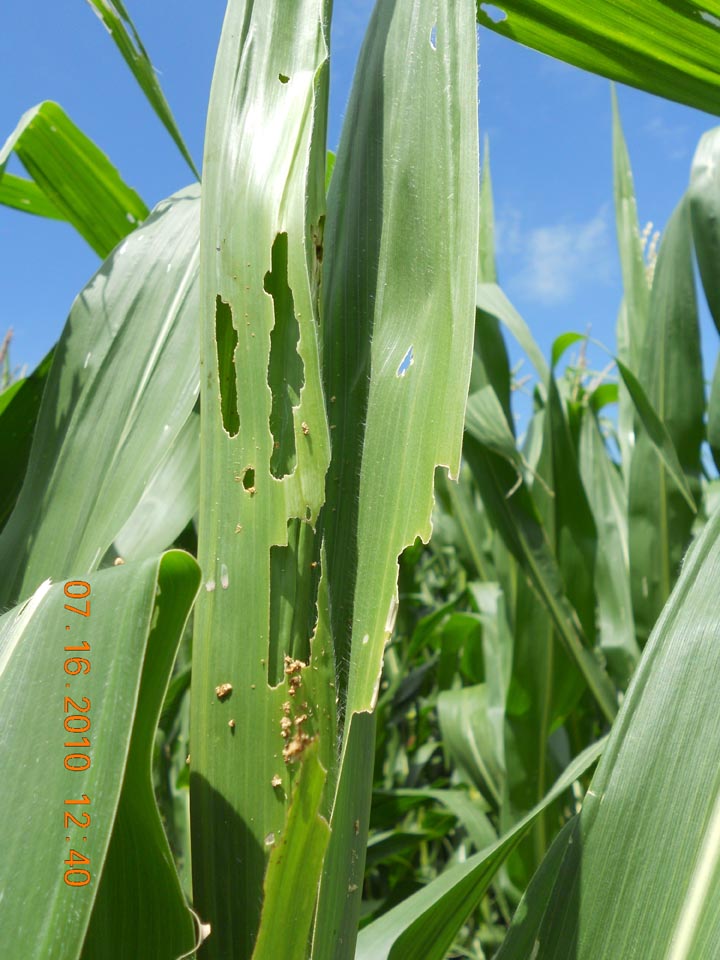April 24, 2012

Mild temperatures have kick-started an early planting season this year, as well as the potential for increased pests and disease pressures for growers. In fact, entomologists already are seeing significant captures of black cutworm and true armyworm in Iowa, Missouri, Indiana and Illinois. Scouting the fields may be one of the best ways to successfully manage damage to young plants, say experts from Pioneer Hi-Bred, a DuPont business.
"Below-freezing temperatures normally kill most pests and diseases or sets them back a bit," says Paula Davis, Pioneer senior manager for insect and disease traits. "Given this year's mild winter conditions, however, we might see insect and disease activity earlier and more of it."
Because seed treatments vary in the degree of control against different pests and diseases, Davis says farmers should keep a close eye on their crops as the growing season progresses.
Potential Pests to Watch For
Several insects should be carefully monitored during the planting season:
Black cutworm: Black cutworms are most commonly drawn to weedy fields with high plant residue and weedy field boundaries. Clear, tilled fields generally see lower levels of infestations. Although fields that use no-tillor conservation tillage and use a burndown herbicide to control weeds are still at risk. A timely application of a burndown herbicide in spring can kill potential host plants.
Davis recommends that, if using a burndown herbicide, growers should wait at least a week before planting to reduce the risk of cutworms moving from dying weeds to seedling corn.
True armyworm: True armyworms migrate north in the spring and prefer to lay eggs in grassy areas. Small grains, pastures and corn planted near grassy areas are at greatest risk of damage.
Corn flea beetle: Corn flea beetles can cause severe plant damage and reduce yields through the possible transmission of Stewart's bacterial wilt. Although most corn hybrids are resistant to Stewart's bacterial wilt, it is still important to scout for flea beetles. The most effective management tactic is to use an insecticide seed treatment first. Insecticides also may be applied as foliar sprays if insect populations are abundant according to each state's recommended threshold.
Bean leaf beetle: Mild winters increase overwintering survival of bean leaf beetles. Adults are strongly attracted to early planted soybean fields, making the newly emerging plants more at risk for damage. When scouting for bean leaf beetles, look closely in soil cracks or under debris where they typically like to hide.
Potential Diseases to Monitor
Pythium and Phytophthora: These water molds are favored by cool, wet conditions that delay emergence. Phytophthora is much more aggressive when soil temperatures are above 55° F and soils are saturated for more than 24 hours.
"Seedling diseases caused by fungi can be extremely destructive on corn and soybeans," says Scott Heuchelin, Pioneer research scientist, field pathology. "Fungicidal seed treatments are a great way to protect the seedling for the first few weeks until the plant has emerged and is well established," he says. "Suboptimal field conditions, such as prolonged saturated soils, can diminish a fungicidal seed treatment's effectiveness. Saturated soils also stress the germinating seed with low oxygen conditions that make germinating seeds more susceptible to fungi like Pythium and Phytophthora."
Management Suggestions
Compared to other seasons, the importance of scouting the fields for insect pests has never been greater. Fields with previous seedling blight issues and no-till or non-rotated fields are at greater risk of seedling blights. To catch possible problems early on, ideally growers should examine their fields at least once a week and observe emergence. Delayed or uneven emergence may indicate a fungal or insect pest is affecting seedling establishment.
You May Also Like




